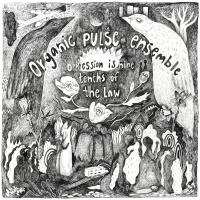Karlheinz Stockhausen, the great German composer who envisioned music as a force of cosmic revolution and who himself became a musical force of nature, having an unprecedented impact on both high and popular post-World War II culture, has died. He was 79.
Stockhausen died Wednesday at his home in Kurten, Germany, according to an announcement on his website. No cause of death was given.
At the height of his fame in the 1960s, his name became synonymous with the future of music. His experiments with the structure of sound and his innovations with electronics made him a pioneer of the musical avant-garde but also attracted the attention of the most venturesome jazz and pop groups. He helped inspire Miles Davis' most extreme musical experiments, and the Beatles included Stockhausen's photograph on the collage cover of “Sgt. Pepper's Lonely Hearts Club Band."
Although he never minded the attention, Stockhausen remained the epitome of the uncompromising artist. He was a prolific composer of 362 works. He wrote numerous texts explaining his often arcane theories. He taught courses about his music and encouraged acolytes. He demanded selfless devotion from his chosen performers, many of them members of his extended family. A true visionary, he never let expense or practical matters stand in his way. He cared little for worldly possessions and was photographed for decades wearing the same jacket.
Among his most important pieces was what has come to be considered the first classic electronic score, “Gesang der Junglinge" (Song of the Youths), which he described in 1955 as the birth of space music. Another classic, from 1958, is “Gruppen," which requires three orchestras and conductors. Once, when asked what he might suggest be programmed with the difficult score for a performance by student ensembles at Tanglewood in Massachusetts, Stockhausen replied that the evening should be “Gruppen," a lecture on “Gruppen" and then “Gruppen" again.
Stockhausen died Wednesday at his home in Kurten, Germany, according to an announcement on his website. No cause of death was given.
At the height of his fame in the 1960s, his name became synonymous with the future of music. His experiments with the structure of sound and his innovations with electronics made him a pioneer of the musical avant-garde but also attracted the attention of the most venturesome jazz and pop groups. He helped inspire Miles Davis' most extreme musical experiments, and the Beatles included Stockhausen's photograph on the collage cover of “Sgt. Pepper's Lonely Hearts Club Band."
Although he never minded the attention, Stockhausen remained the epitome of the uncompromising artist. He was a prolific composer of 362 works. He wrote numerous texts explaining his often arcane theories. He taught courses about his music and encouraged acolytes. He demanded selfless devotion from his chosen performers, many of them members of his extended family. A true visionary, he never let expense or practical matters stand in his way. He cared little for worldly possessions and was photographed for decades wearing the same jacket.
Among his most important pieces was what has come to be considered the first classic electronic score, “Gesang der Junglinge" (Song of the Youths), which he described in 1955 as the birth of space music. Another classic, from 1958, is “Gruppen," which requires three orchestras and conductors. Once, when asked what he might suggest be programmed with the difficult score for a performance by student ensembles at Tanglewood in Massachusetts, Stockhausen replied that the evening should be “Gruppen," a lecture on “Gruppen" and then “Gruppen" again.





















